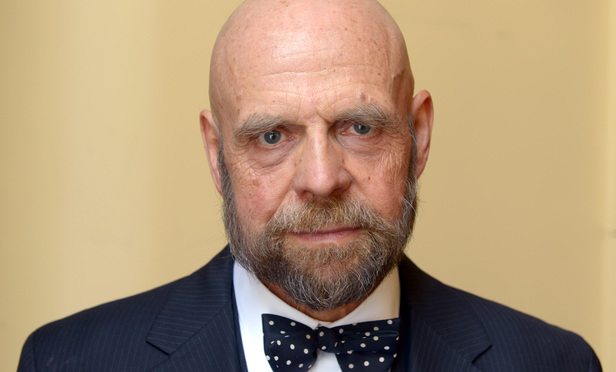Timothy M Tippins

June 06, 2019 | New York Law Journal
Unicorns in the Courtroom: The Case Against DiagnosisIn his Matrimonial Practice column, Timothy M. Tippins writes: In some custody decisions, the court discusses the critical issue of whether and to what extent the disfavored parent's diagnosed disorder impacts his or her functioning as a parent. In others, no such analysis is set forth, leaving the impression that the court simply assumed that the diagnosis conveyed information bearing directly upon the litigant's capacity to parent the child. As discussed in this article, that is not a safe assumption.
By Timothy M. Tippins
18 minute read

March 15, 2019 | New York Law Journal
A Passel of Poppycock: Expert Witness Roles and LimitationsIn his Matrimonial Practice column, Timothy M. Tippins provides a detailed analysis of the recent decision in 'J.F. v. D.F,' which “vividly exemplifies what can happen when experts fail to establish and maintain a clearly defined role in the assignments they undertake.”
By Timothy M. Tippins
8 minute read

January 11, 2019 | New York Law Journal
Parental Alienation: What a Concept!In his Matrimonial Practice column, Timothy M. Tippins writes: Judicial opinions abundant in facts and rich in thoughtful analysis are as rare as a white peacock. Hon. Richard A. Dollinger has delivered such a rarity in 'J.F. v. D.F.', a determination of a contentious custody dispute. This article addresses the court's development of a specific definition of the complex, controversial and emotionally-charged term, “parental alienation.”
By Timothy M. Tippins
13 minute read

September 05, 2018 | New York Law Journal
Computerized Test Interpretations in Custody LitigationIn his column on Matrimonial Practice, Timothy M. Tippins explores some of the evidentiary issues presented when computer-based test interpretations are used by expert witnesses.
By Timothy M. Tippins
11 minute read

July 18, 2018 | New York Law Journal
Psychological Testing: Controversy and ConsensusIn his column on Matrimonial Practice, Timothy M. Tippins explores the current controversy regarding the reliability of psychological testing in custody determinations.
By Timothy M. Tippins
3 minute read

February 28, 2018 | New York Law Journal
Bias, Credibility and Appellate Review in Custody LitigationMatrimonial Practice columnist Timothy M. Tippins writes: The recent decision of the Appellate Division, Third Department, in 'Montoya v. Davis', presents an interesting example of the interaction of custody factors. It also presents some anomalies that raise questions regarding the consistency of appellate review of custody decisions.
By Timothy M. Tippins
14 minute read

January 03, 2018 | New York Law Journal
Advocating in the Name of the ChildMatrimonial Practice columnist Timothy M. Tippins writes: A developing body of case law holds that the dynamic of parental influence/alienation also impacts the role of the attorney for the child.
By Timothy M. Tippins
9 minute read

November 01, 2017 | New York Law Journal
Interim Exclusion Orders: Substantive Standards and Due ProcessIn his Matrimonial Practice column, Timothy M. Tippins discusses 'L.M.L. v. H.T.N.', which involved an application for interim exclusive possession of the marital residence. The decision substantially recasts one of the traditional standards governing the grant of such relief.
By Timothy M. Tippins
23 minute read

September 06, 2017 | New York Law Journal
Identifying Bias in Custody EvaluationsMatrimonial Practice columnist Timothy M. Tippins writes: Justice Potter Stewart famously quipped that although he could not define pornography, "I know it when I see it." Bias presents the opposite problem. It can be readily defined but you do not necessarily know it when you see it. Given that custody evaluators are as susceptible to bias as anyone else and because bias can destroy the reliability of their conclusions, it is imperative that lawyers and judges be able to recognize its telltale signs.
By Timothy M. Tippins
19 minute read

July 06, 2017 | New York Law Journal
Bias in Custody EvaluationsMatrimonial Practice columnist Timothy M. Tippins writes: Although sometimes called a standard, "best interests of the child" is not. It is in no way an operationally defined specification. It is at best a legal construct representing an aspiration, one laden with personal, social, cultural and moral value judgments.
By Timothy M. Tippins
9 minute read
Trending Stories
- 1Call for Nominations: Elite Trial Lawyers 2025
- 2Senate Judiciary Dems Release Report on Supreme Court Ethics
- 3Senate Confirms Last 2 of Biden's California Judicial Nominees
- 4Morrison & Foerster Doles Out Year-End and Special Bonuses, Raises Base Compensation for Associates
- 5Tom Girardi to Surrender to Federal Authorities on Jan. 7
More from ALM
- Scan In Progress: Litigators Leverage AI to Screen Prospective Jurors 1 minute read
- Legal Speak at General Counsel Conference East 2024: Match Group's Katie Dugan & Herrick's Carol Goodman 1 minute read
- Legal Speak at General Counsel Conference East 2024: Eric Wall, Executive VP, Syllo 1 minute read



